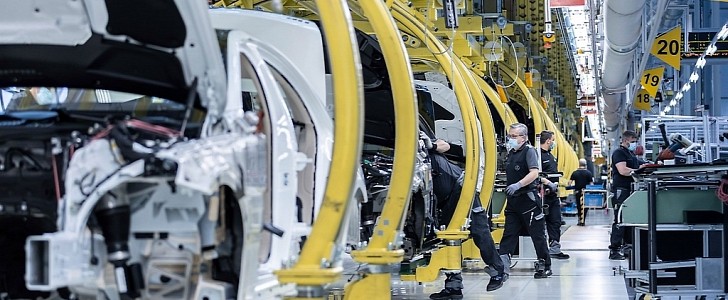The global chip shortage is here to stay, for now, there’s no doubt about it, and while companies in several industry sectors, authorities, and foundries themselves are looking into ways to bring it to a halt as fast as possible, the light at the end of the tunnel still seems to be very far away.
Daimler CEO Ola Kallenius, for example, doesn’t expect things to come back to normal earlier than 2023, with some very subtle signs of recovery expected in the fourth quarter of this year.
Speaking with reports in Munich, Kallenius explained that some factory shutdowns, obviously caused by the invisible enemy that has pushed the planet into one of the largest health crises in history, are still producing significant disruptions in terms of chip supplies, and it’s likely that the new wave would continue to have a major impact on the industry.
As a result, Daimler doesn’t expect the global lack of chips to come to an end anytime soon, so it could last for at least two more years if nothing changes overnight.
Unfortunately, Kallenius isn’t the only high-profile executive in this business who believes the global chip shortage would continue until 2023.
Earlier this month, Toshiba, which right now is one of the semiconductor manufacturers that so many industries are relying on, predicted it wouldn’t be able to align the production with the chip demand until late 2022, with some orders to only be filled in full in 2023.
In other words, Toshiba too expects the chip crisis to stick around for two more years, despite some signs of recovery to be recorded as soon as the next year.
In the meantime, carmakers have no other option than to slow down or temporarily halt the production of certain models. Most recently, Ford and General Motors announced they’re pausing the operations at certain factories due to the same problem, with the disruption affecting some of their most popular models, including the F-150 and the Chevrolet Silverado, respectively.
Speaking with reports in Munich, Kallenius explained that some factory shutdowns, obviously caused by the invisible enemy that has pushed the planet into one of the largest health crises in history, are still producing significant disruptions in terms of chip supplies, and it’s likely that the new wave would continue to have a major impact on the industry.
As a result, Daimler doesn’t expect the global lack of chips to come to an end anytime soon, so it could last for at least two more years if nothing changes overnight.
Unfortunately, Kallenius isn’t the only high-profile executive in this business who believes the global chip shortage would continue until 2023.
Earlier this month, Toshiba, which right now is one of the semiconductor manufacturers that so many industries are relying on, predicted it wouldn’t be able to align the production with the chip demand until late 2022, with some orders to only be filled in full in 2023.
In other words, Toshiba too expects the chip crisis to stick around for two more years, despite some signs of recovery to be recorded as soon as the next year.
In the meantime, carmakers have no other option than to slow down or temporarily halt the production of certain models. Most recently, Ford and General Motors announced they’re pausing the operations at certain factories due to the same problem, with the disruption affecting some of their most popular models, including the F-150 and the Chevrolet Silverado, respectively.






